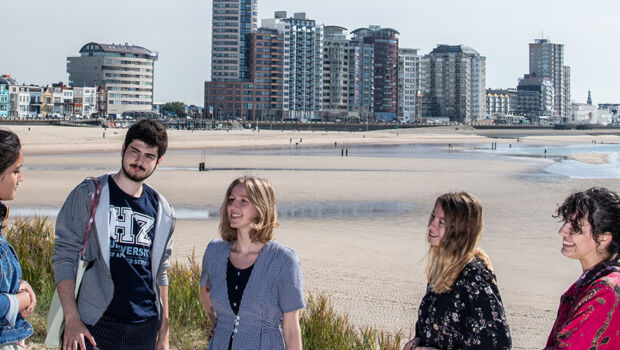Deciding to study abroad is a significant step, and financial concerns can often make it seem daunting. If you’re contemplating whether you can afford an international education, particularly in the Netherlands, read on to find out how studying here can be more manageable than you might think.
Studying abroad might sound expensive to your ears, but it isn't as expensive as you might think! An advantage of studying in the Netherlands is that you can do it at relatively low cost. Yes, there is tuition fees and cost of living. Both are relatively low compared to other countries and there are also scholarships, student funding and you can always find a job.
Expenses
Tuition fees
Tuition fees in the Netherlands are generally lower than in many other countries. The fees vary based on your nationality, and you can find the specific fees on the HZ's website. These fees cover only the cost of classes, so remember to budget for additional expenses such as books, housing, and travel.
Housing
In Vlissingen and Middelburg, two student-friendly cities, housing is quite reasonable. Renting a private room in a shared house typically costs between €300 and €550 per month. For those seeking more privacy, studios or flats range from €400 to €700 per month. Additionally, students residing in studios may qualify for financial assistance from the Dutch government. HZ has partnered a housing company APV to make it easier for students to find a place to live in. More information about housing can be found here.
Living costs
Living costs are further manageable due to a range of affordable supermarkets and budget-friendly options. Travel within the Netherlands can be quite affordable: our national train travel service offers a variety of subscriptions, discount and special tickets for group travels - you can use this at your own advantage!
Finances
Scholarships and financial aid
While common in other countries, scholarships, especially full scholarships, are rare in the Dutch education system. However, there are some scholarship options available at the HZ. To finance your study, you may be eligible for a student loan, for student funding or for postgraduate funding in the Netherlands. To determine if you qualify for financial support to fund your study abroad, you can check the financial aid.
Job opportunities
Finding part-time work in the Netherlands is relatively straightforward. Many temporary job opportunities are available in cities and surrounding areas, and you don’t need to speak Dutch to apply. These jobs are designed to accommodate your study schedule, ensuring your academic performance remains unaffected. For more information, visit The Work Zone.
Studying in the Netherlands is not only affordable but also offers an enriching experience. With manageable tuition fees, affordable living costs, scholarships, and job opportunities, this country is an excellent choice for international students. The opportunity to live and study in such a vibrant environment makes the financial investment well worth it.







